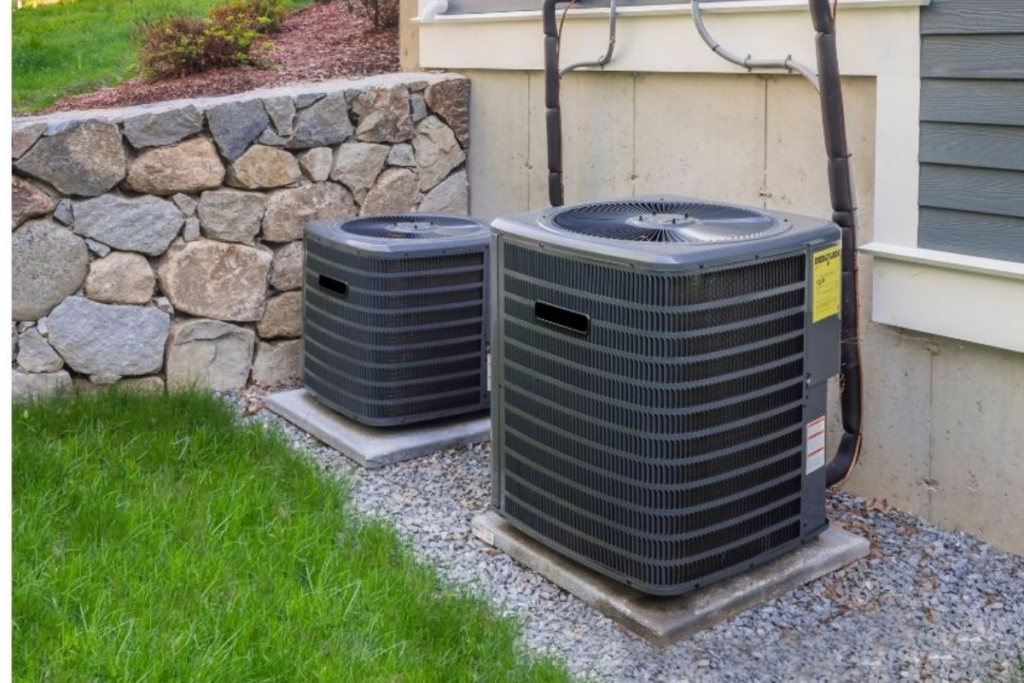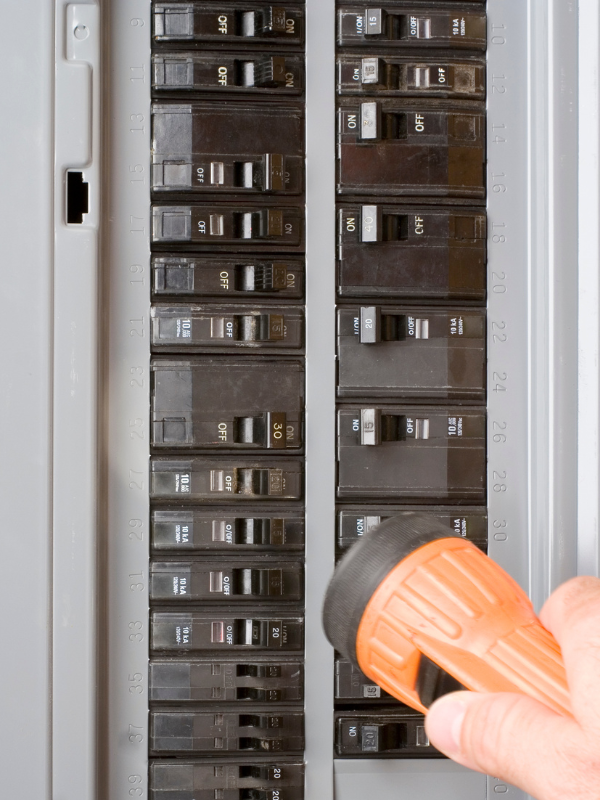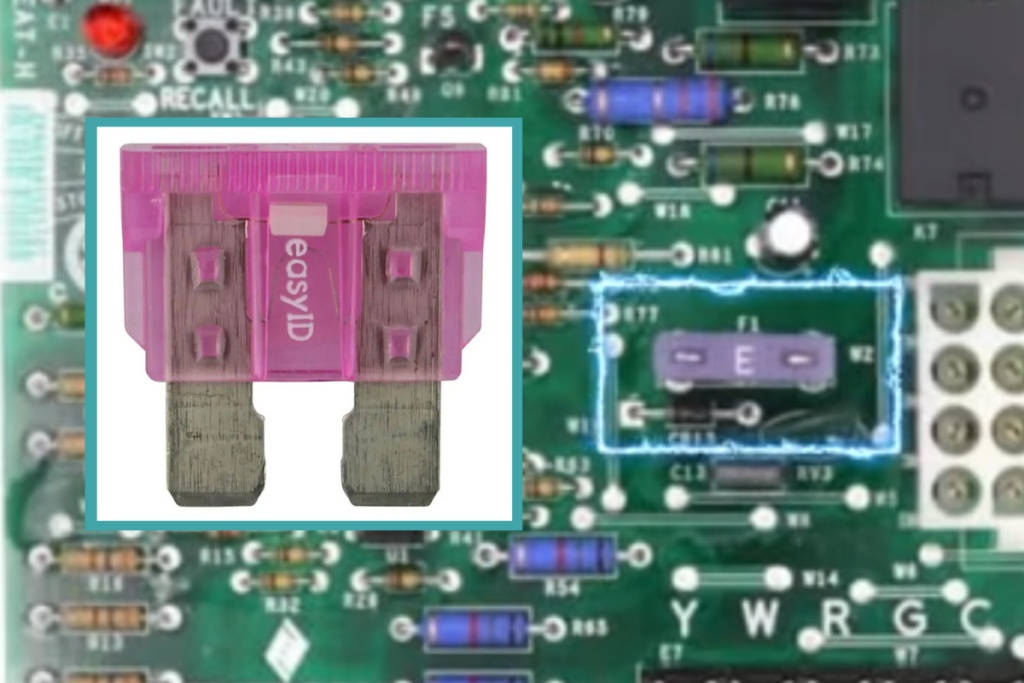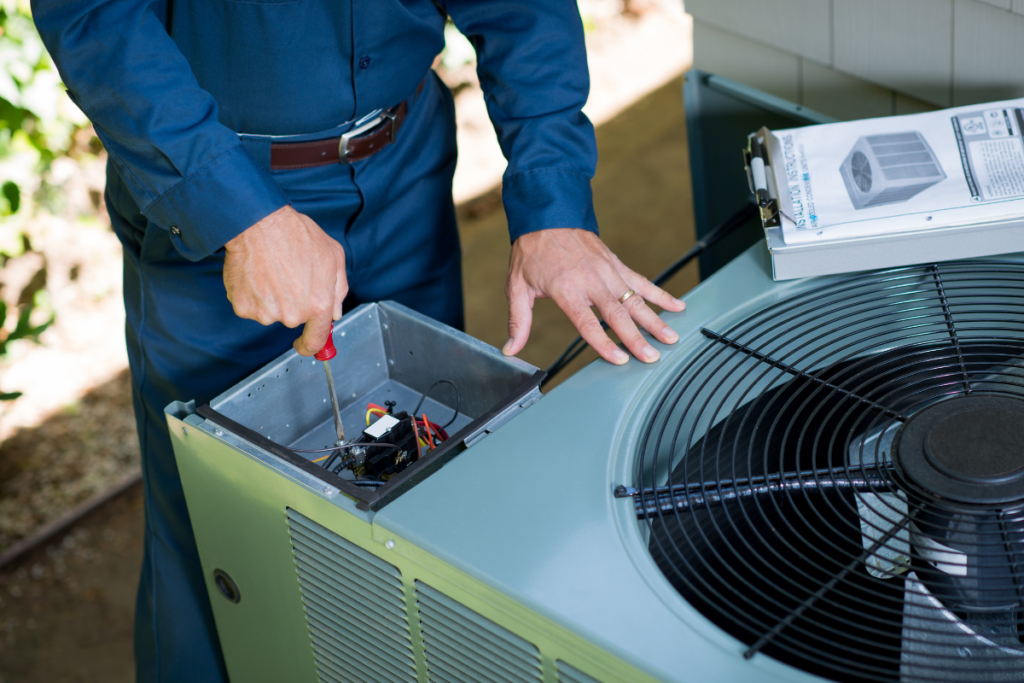Air Conditioner Keeps Blowing a Fuse in the Circuit Board? (7 Likely Causes)
Is there anything worse than the air conditioner going out in the middle of the summer? It’s 95° degrees outside, nothing is coming out of the vents, the heat is creeping in, and it’s going to be three days before the HVAC technician can get to you. What do you do when the AC circuit board fuse keeps blowing?
The circuit board fuse in your HVAC circuit board will blow if it is pulling too much power because of clogged air filters, a lack of refrigerant, a faulty capacitor or inadequate fuse, loose cables, or a dirty condenser. Unfortunately, most of these problems can only be diagnosed and repaired by a professional, especially if you’re concerned about voiding the warranty.
Homeowners, keep reading to get your questions about why your AC circuit board fuse keeps blowing, and what you can do to prevent it next time.
Disclaimer: This is not intended to be a detailed repair guide. It is intended to point you to the possible points of failure based on my experience. Working with ACs can expose you to high voltages that can shock, and cause severe injury or even death.
Why does my air conditioner keep blowing fuses?
Last summer, my air conditioner stopped working on Labor Day weekend. It may be the unofficial end of summer, but that doesn’t mean the temperatures were coming down any time soon!
I called my HVAC tech Rex, and he told me I wasn’t exactly the only one with an AC that had gotten tired over the summer. Fortunately, he had a couple of things I could troubleshoot between hanging blackout curtains over all the west-facing windows.
Just in case you don’t have a Rex to call for advice, I’ve got all the possible reasons your air conditioner might be blowing its internal fuse.
Your air conditioner is probably blowing its fuse because the air filters haven’t been changed recently and it is pulling too much power. The problem may also be caused by a lack of refrigerant, a short in the wires, a dirty condenser or damaged external coils, or a faulty capacitor. It’s also possible that the fuse itself isn’t able to handle the full power draw of the air conditioner running at maximum and you’ve gotten lucky so far.

Most manufacturers recommend you change the air filter every 90 days. Depending on the type of filter you need and how many returns you have, these components can get a little pricey, but it’s nothing compared to repairing or replacing the unit.
Top tip: Filters come in a variety of MERV ratings. I opt for the MERV 13 ones during the spring because those are great for capturing pollen, but go pretty basic the rest of the year.
The difference between AC circuit board fuse and breaker
While we’re talking about the AC circuit board fuse, it’s worth pointing out that blowing the fuse is not the same as tripping the breaker. These switches control the power flow, typically 120 volts at either 15 or 20 amps, although some double pole breakers provide 240 volts (up to 125 amps).
All the power in your home runs through an electrical panel that contains the main breaker and all the circuit breakers.

The air conditioner switch should be a double pole breaker with a high amperage. This will trip when the unit has an overload in the circuits, typically by attempting to draw more power than the wires are rated for.
The AC circuit board fuse is located inside the HVAC unit itself and is meant to protect the condenser from being damaged by overheating.
To access the circuit board, you’ll need to remove the cover panel. The fuse may be either cartridge-style (like this one) or a blade fuse.
What causes the AC circuit board fuse to blow?
The air conditioner’s fuse is designed to fail before more complex (and expensive) parts of the unit are damaged. Typically this means that the filament will melt and cut power to the condenser before it overheats.
It almost means that there is likely a larger issue behind the blown fuse that needs to be addressed, particularly if it happens multiple times.
If the control board fuse in the air handler unit keeps blowing, it might be because
- Air filters may be clogged
- AC is low on refrigerant
- Short in the wires between the air handler and the condenser
- Condenser is dirty
- Fuse capacity is inadequate
- Contactor coil may be burned out
- Capacitor is faulty
Keep reading for all the details on how these issues may be causing the fuse to blow, how to determine which problem you’re facing, and what to do about it.
Find out the top 10 reasons your portable air conditioner compressor keeps shutting off.
Air filters may be clogged
The most common reason that your air condition fuse keeps blowing is that it’s past time to replace your air filters.
Clogged air filters reduce the efficiency of your air conditioner, meaning it has to work harder than usual to maintain the same temperature. The more clogged the filter, the more pressure and harder the air conditioner needs to work, which can lead to overheating.
Give them a quick inspection and see if it is time for a replacement. Note that running an AC unit without a filter is a no-no. Dust will move up into the ductwork and make the whole system less energy efficient in the long run.

There is an air filter located in each return vent in your home, and it’s recommended that you replace them all every 90 days. As with many things, basic maintenance throughout the year will help prevent major issues later on.
Related: Is it possible to run an air conditioner without a filter?
AC is low on refrigerant
Another reason that your air conditioner may be overheating and blowing its fuse is that the unit is low on refrigerant, aka freon.
While you shouldn’t ever need to refill the coolant in your refrigerator, it may become low if there is a leak. Once the refrigerant level drops, it will be unable to cool the condenser, leading to overheating.
If you suspect there is a coolant leak, contact an HVAC professional. Not only will they be able to refill the refrigerant supply, they’ll also be able to track and repair the leak.
Refrigerant is necessary for the air condition to function properly, but can you run the AC without oil? Find out!
Short in the wires between the air handler and the condenser
You may also be experiencing shorts if there are any shorts or loose wires, especially if you can’t find any rhyme or reason behind when the fuse is blowing.
There may be a short in the connecting wires between the air handler and the condenser. The connecting wire may have a cut or kink that’s damaged the cable causing the core current inside to short and blow the fuse.
Unless you are very confident in your abilities, electrical connection repairs in an air conditioning system are best left to the professionals. Damage caused by your repairs will likely void the warranty.
Condenser is dirty
Much like how clogged filters will cause the air conditioner to lose efficiency, a dirty condenser will drastically affect the performance of your unit.
Dirty coils can cause the condenser to work harder, leading to overheating and a blown fuse. They may also strain the capacitor, causing it to run more than normal.
Annual air conditioner maintenance will prevent this problem. You can either set up a recurring visit from your friendly neighborhood HVAC tech or put it on your calendar to do yourself.
Fuse capacity is inadequate
We’ve talked a good bit about what causes your fuse to blow and how to replace it, but what if the fuse itself is the issue?
The fuse will continue to blow even if there are no apparent problems with the HVAC system if it is not rated high enough for the maximum amperage required to run the air conditioner.
Air conditioner fuses are often small and finicky, and it’s possible that the wrong one was used as a replacement at some point previously. Even if you’re reliably replacing the blown fuse with the “correct” replacement, it may be wrong.

In this case, don’t just start using higher amperage fuses until you find one that doesn’t blow – that’s a recipe for blowing out your condenser if something is wrong!
You’ll either want to find a professional who knows the correct fuse for your specific unit’s rated voltage or consult the owner’s manual.
Contactor coil may be burned out
The contactor controls the flow of electricity throughout the air conditioner.
Contactor coils on the outside condenser coils may be burned out causing the fuse on the control board to blow.
Replacing the contactor isn’t a do-it-yourself project unless you happen to be an HVAC professional.
Capacitor is faulty
Finally, it’s possible that the capacitor itself is faulty.
The circuit board on the air handler unit may be faulty and shorting causing the fuse to blow.

Again, this will require contacting a professional to diagnose and replace the capacitor to avoid the risk of voiding your warranty.
Signs the AC circuit board fuse has blown
With all the possible problems with your air conditioner, how do you know if the circuit board fuse has blown?
The most obvious sign that the AC fuse has blown is that the main unit isn’t working. Specifically, it’s not running at all – as opposed to making noise and not blowing, or coming on as normal but not blowing cold air.
While less common, the air conditioner may make grinding, buzzing, or squealing noises as it pulls power from the main line, but that power has nowhere to go because the motor isn’t running.
Check out this article for 6 reasons your air conditioner might be making loud noises when it starts up.
If the air conditioner stops working and you smell something burned or like car exhaust, you should cut the power to the main breaker in your home and call a professional immediately. You’re probably looking at a serious refrigerant leak.
Let Us Know How We’re Doing!
Did this expertly prepared resource answer your question?
Do you have another question about home maintenance, home improvement projects, home appliance repair, or something else?
Get more information, send in questions and keep the discussion going by contacting the I’ll Just Fix It Myself company customer service team at at 1-800-928-1490 or Email us at [email protected]
